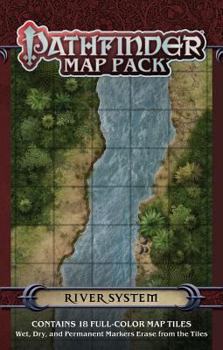Pathfinder Map Pack: River System
Select Format
Select Condition 
Based on Your Recent Browsing
Book Overview
Let a river run through your game Pathfinder Map Pack: River System contains 18 full-color, 5 x 8-inch map tiles, stunningly crafted by cartographer Jason A. Engle, that combine to form rivers to navigate or circumvent These rivers perfectly match the grassy terrain found in Pathfinder Flip-Mat: Basic Terrain Multi-Pack and other grassy Flip-Mat products. Wet, dry, and permanent markers erase from the tiles Price includes VAT. This description may be from another edition of this product.
Format:Toy
Language:English
ISBN:B010E2KE8Q
ISBN13:9781601257376
Release Date:January 1
Publisher:Paizo Publishing
Length:18 Pages
Weight:0.46 lbs.
Dimensions:0.3" x 5.2" x 8.2"
Age Range:16 years and up
Grade Range:Grade 11 and higher
Customer Reviews
12 customer ratings | 4 reviews
There are currently no reviews. Be the first to review this work.





















